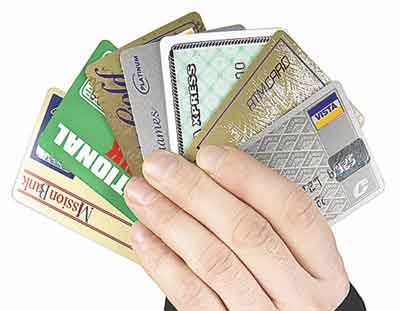Losing his job in June as head of a health care nonprofit was a
blow for Christopher Laxton, but the Oak Park, Ill., resident and
his wife had a cushion: some savings and a home equity line with
Chase that had $40,000 to $50,000 in borrowing capacity left.
Losing his job in June as head of a health care nonprofit was a blow for Christopher Laxton, but the Oak Park, Ill., resident and his wife had a cushion: some savings and a home equity line with Chase that had $40,000 to $50,000 in borrowing capacity left.
Then in August, the big blow came. Chase sent a letter saying the bank had reduced their home equity line and frozen it at the amount they already had borrowed.
“From our perspective, the safety net was suddenly gone,” said Laxton, who has two children in college and has yet to land another job. “It made us look at how long we could last before we went down to the local Starbucks to see if they were hiring.”
Stories like Laxton’s have become more common as the nation’s economic woes deepen and a credit crunch has morphed into near paralysis. Finding new credit or just holding on to what you have has gotten extremely difficult. And the impact is not limited to consumers who are swimming in debt or have abused credit in the past.
“We have definitely been hearing from a lot of people, even those with great scores, that they have been getting their credit lines cut or closed,” said Gerri Detweiler, credit adviser for Credit.com, a personal finance Web site. “Issuers are looking at their exposure, and they are trying to make sure if things in the economy continue to get worse, they don’t end up holding the bag.”
While it is the financial institutions that decide whether to make or continue a loan, credit experts say there are some proactive steps you can take, and a rather lengthy list of things to avoid, to make yourself appear as creditworthy as possible.
A simple step in your search for credit is to expand the horizon of institutions with which you would consider doing business. Think about becoming a member of a credit union, and keep an eye out for new community banks that may be springing up and appear eager to win business.
But it’s important to remember that lenders have parameters they monitor to determine someone’s credit worthiness. If you:
n Fall behind on your mortgage or car loan, it will set off alarm bells at every company that has extended you credit.
n Start running up bigger balances on your credit cards than you have in the past, that’s another red flag.
n Used to pay an extra $50 a month over the minimum on your credit card but now pay the minimum, that could cause the card issuer to cut back your line.
n Always paid on time, but now the check arrives a few days late, that’s an unwelcome change to your payment pattern, and there are likely to be consequences.
“Even if you’re paying the minimum, make sure it’s by the due date,” advised Chase spokesman Tom Kelly. “A lender who sees a borrower falling behind could choose to reduce the line of credit the borrower has.”
Having one or two lenders cut back your credit lines can trigger a domino effect.
A good chunk of a person’s credit score relates to how much outstanding debt they have as a ratio of their available credit. Someone who has $25,000 in credit card debt and another $25,000 in unused credit has a debt ratio of 50 percent. If the available pool of credit shrinks to $30,000, that ratio rises to more than 80 percent, which is considered too high.
“Try to keep your outstanding balances well below 50 percent of your credit line,” said Stephen Brobeck, executive director of the Consumer Federation of America.
Maybe you’ve read that you should keep a line of credit open even if you don’t really use a particular credit card. Don’t be surprised if the card issuers politely inform you that your inactive account is now closed, as they look for ways to cut their exposure. Since the card companies aren’t making any money off you, it’s an easy call.
To avoid this, start using those cards for occasional purchases instead of piling everything on one.
“Buy some groceries or gas and pay them off on time so you have a backup,” recommended Detweiler.
When it comes to home equity lines of credit, it’s not as easy to hold on to what you have.
Many banks lent 100 percent or more of a home’s value and now are reining in those loans by reducing outstanding lines of credit. They also may be recalculating your home’s value, and it may be lower than when you took out the loan.
If you disagree with a lender’s new valuation of your home, you can appeal, but that involves paying for a new appraisal out of your pocket, with no assurance that you will get the number you were hoping for.
One thing for certain: You shouldn’t count on home equity lines to pay for fixed expenses such as college tuition because they may not be there when you need them, credit experts say.














